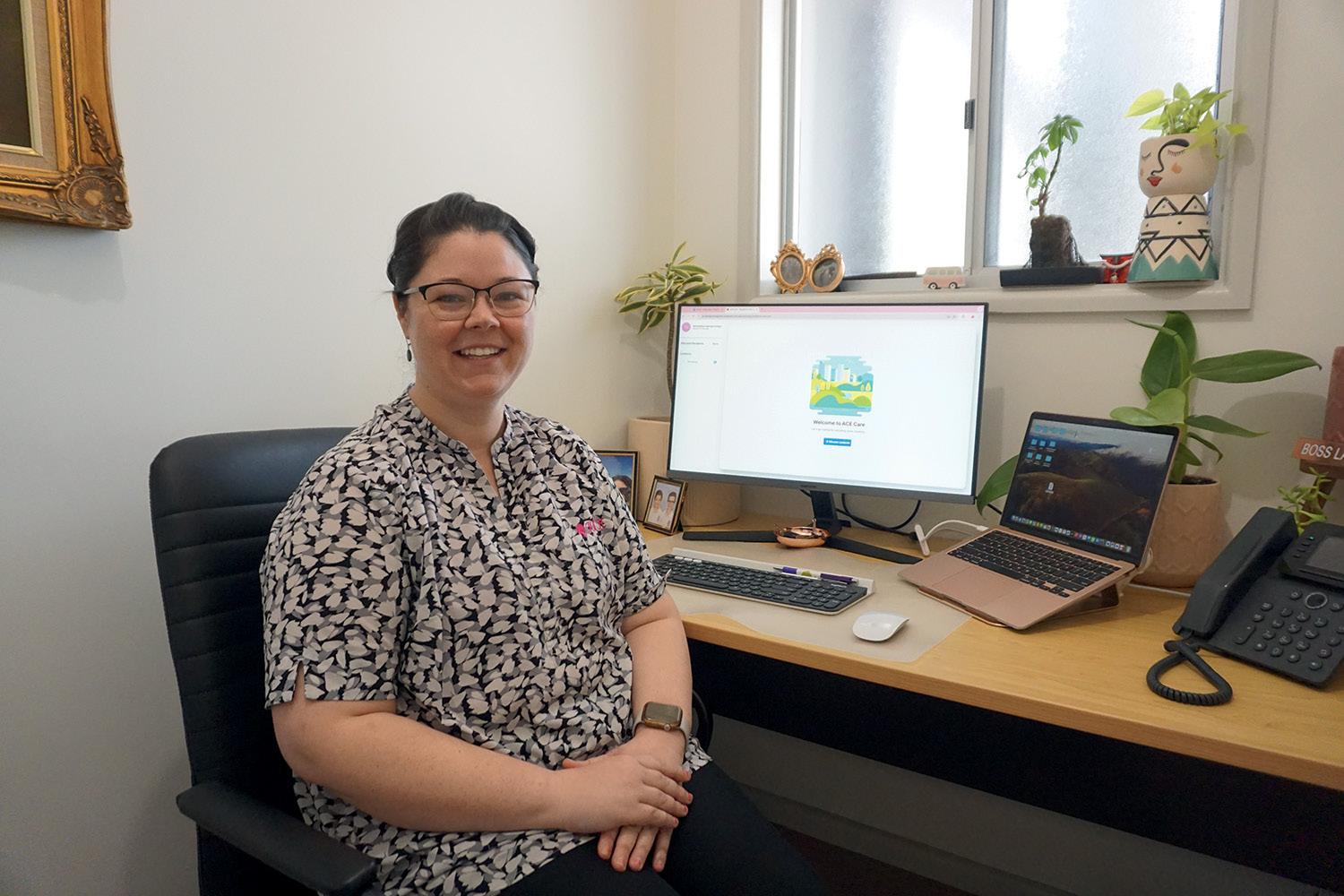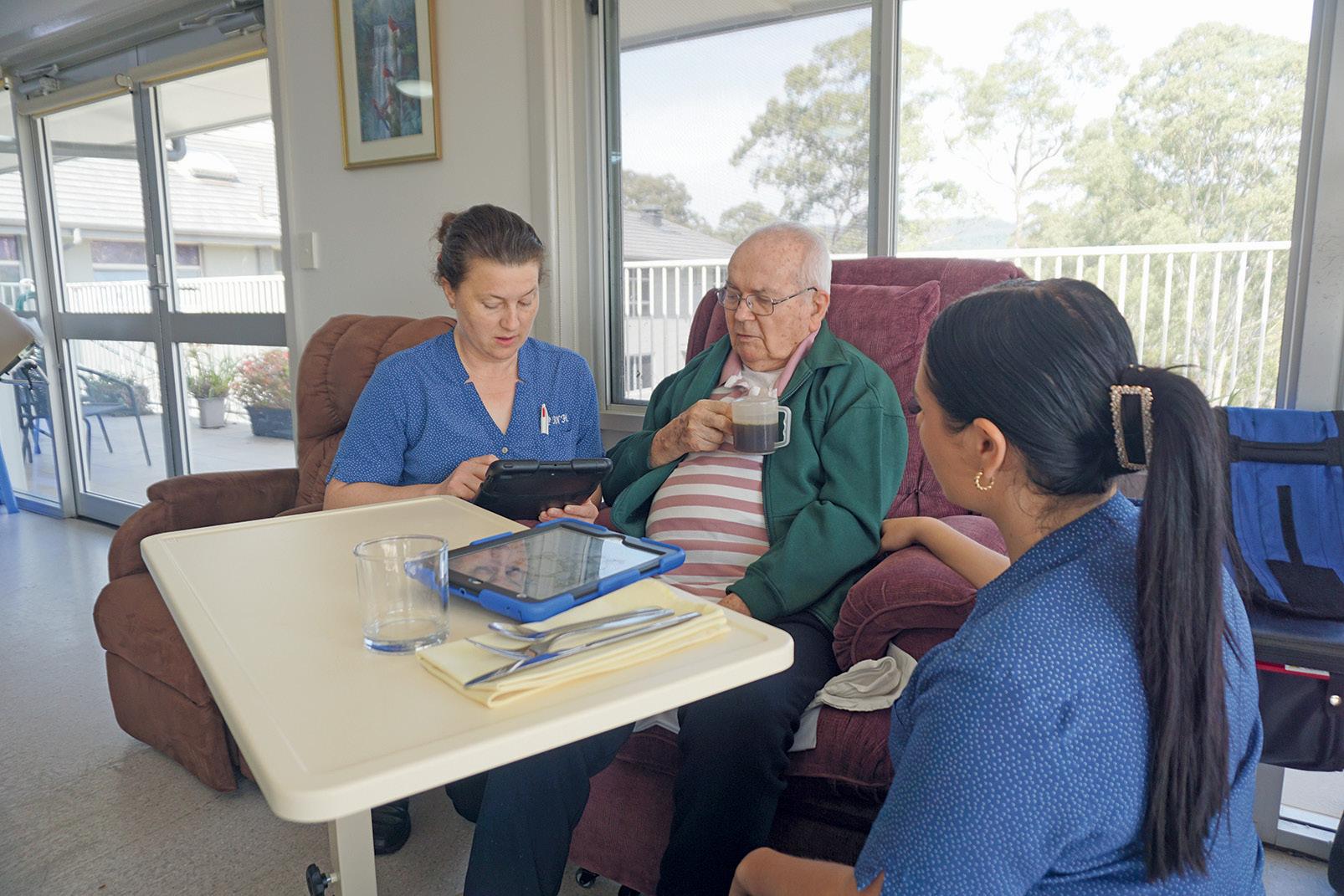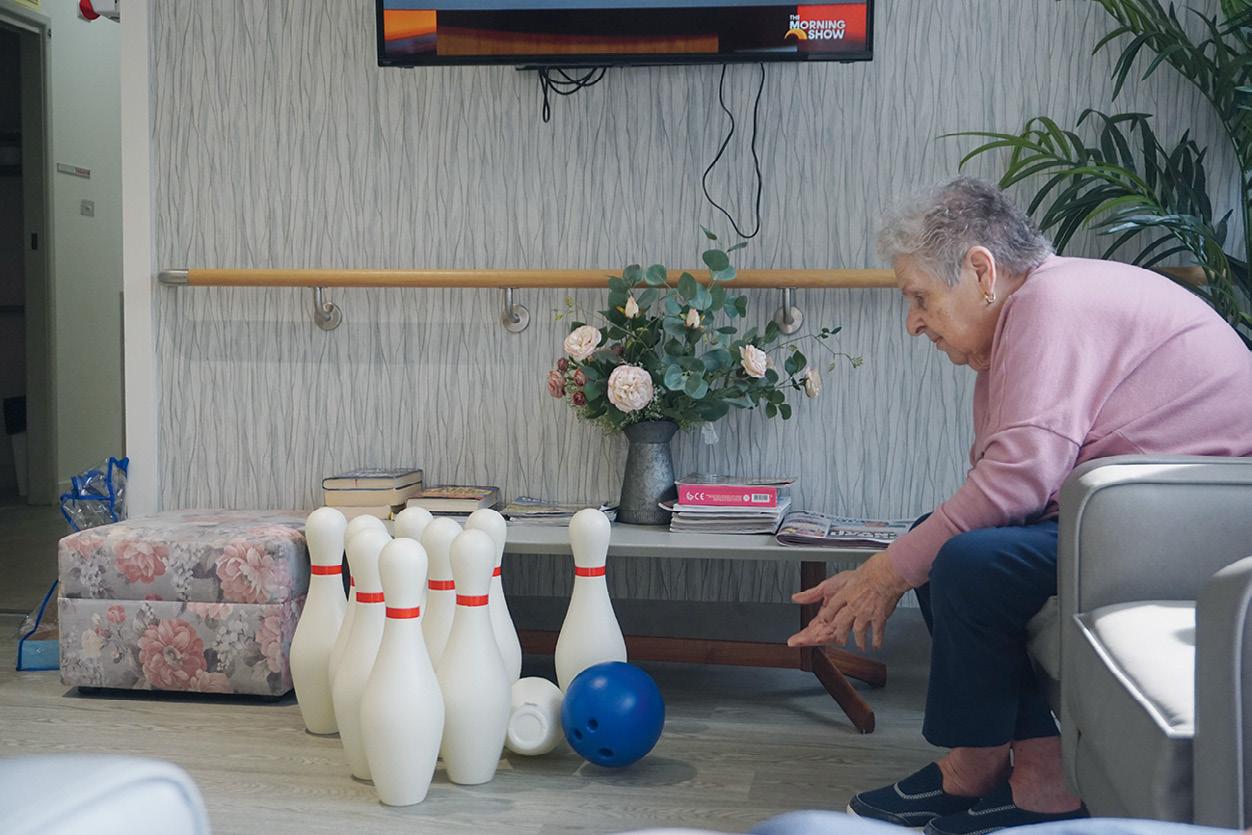
7 minute read
SPONSORED CONTENT: DIGITALLY TRANSFORMED
Digitally transformed
After two years of using Humanetix ACE Platform, Kurrajong Nursing Home can’t imagine continuing without it.
As the care needs of residents increase and the demands for quality, personalised care and regulatory requirements change and grow, outdated and paper-based care management systems are no longer adequate.
In today’s residential aged care – as recommended by the royal commission – providers need technology and data-driven solutions that help to continuously improve care quality, empower staff, and foster innovation.
For many aged care homes around the country, achieving this revolution in aged care delivery and outcomes will require a digital and cultural transformation.

This was the situation facing Terese Gatt, Director of Nursing at Kurrajong Nursing Home – a standalone residential care facility 75 kilometres north-west of Sydney on the lower slopes of the Blue Mountains.
After working for several organisations and trialling various products, Gatt says she’d never found a system that was “exactly right” to achieve the transformation in care delivery, planning and reporting required. That was until she discovered the Humanetix ACE Platform.
Just over two years ago, Kurrajong Nursing Home moved from a paper-based clinical management system to ACE, resulting in improved outcomes for residents and compliance, says Gatt.
“We implemented ACE in 2022 and then we had an audit shortly after, and we passed all standards. ACE definitely helped us with becoming compliant with the commission 100 per cent,” Gatt tells Australian Ageing Agenda
Kurrajong Nursing Home has been using the ACE pointof-care platform throughout the organisation and has seen many benefits including streamlined workflows and reporting, resulting in increased efficiencies and improved documentation.
“Before using ACE, our staff would provide all of the care that they needed to do for their shift, and then sit down and write their notes. With ACE, they can pop it on their iPad and put it on the trolley that they wheel around so they’re able to write their notes contemporaneously, so their record keeping is more accurate now too.”
According to Gatt, the aged care home couldn’t be without the platform now, as it has reduced many burdens including cutting time spent on paperwork from two weeks to just 20 minutes.

Among the benefits for staff, says Gatt, is they can update care plans and assessments in one place and no longer have to use multiple systems.
“It just makes life easier, and you can spend more time on the floor caring for residents than you do sitting in the office doing your paperwork,” she says.
These time-saving benefits are among the trends seen by Sofia Zainal, Head of Product at Humanetix.
The most significant improvement has been extracting data to write performance improvement plans.
“Looking into our records, we’ve started seeing staff spending more time with the residents, as opposed to doing business on computers,” says Zainal – who along with Gatt was instrumental in leading the digital transformation at Kurrajong Nursing Home.
With increasing care needs from residents who are coming into residential aged care later, it offers a much-welcomed benefit, says Zainal. She envisages all aged care homes implementing technology such as ACE due to the impressive benefits it can offer the workforce.
And despite some workers initially feeling hesitant to leave paper processes behind, Zainal says advanced technology will be the only way to keep up with the increase in demands when it comes to clinical care and the systems needed to manage it.

“One of the exciting things for us is that the system can be integrated with other systems out there,” Zainal tells AAA.
“As an example, Kurrajong Nursing Home is using a medication system that’s already integrated with the ACE Platform. That means the data collection and looking at the reports of what has been conducted for an individual at a care and medication level is a lot easier.”
From Gatt’s perspective, the data insights available via ACE have been central to benefits from the implementation at Kurrajong Nursing Home including with resident outcomes.
“The most significant improvement for myself as director of nursing is being able to extract data from ACE to write performance improvement plans and see how the home tracking on quality indicators, for example,” she says.
“I’m so passionate about this system because it is just so good. I have been in the position where it is so hard to get the data you need and for the director of nursing and care managers like me, this system is going to save time. You can then spend your time more wisely doing things that are going to improve your residents’ lives.”

Gatt has also found that since implementing ACE, the home has been able to use the real-time data it gathers to identify issues and respond accordingly. Of note, the home reduced the number of falls among residents through simple roster adjustments.
“We focused on falls and then we were able to see from that data that we had a large number of falls of a morning around 6.30. In response we moved our handover time so there would be more staff on the floor,” Gatt tells AAA
“We implemented more staff starting a little bit earlier when these residents seem to be getting up and moving around and our falls dropped significantly. It’s greatly improved our care for our residents because we can see from the data what they need.”
Arthur Shih - Chef Executive Officer and Managing Director of Humanetix - believes technology is “a change-maker” for the aged care sector.
You can spend more time on the floor caring for residents.
“We want to try and empower people to deliver better care for residents,” Shih tells AAA
“The reason I’m at Humanetix is because my grandfather had a terrible experience in aged care and was treated as a bunch of tasks and things to be done, as opposed to being seen as a human,” says Shih.
“The trick for us is doing it in a way that gets nurses, clinicians and care workers excited to use the system. We have a hypothesis that rather than not liking to use technology, staff don’t like using medical management systems that aren’t user friendly. Our gamification element to the software is about getting people excited about giving them an incentive to use the system.”
Shih is referring to a new gamification feature being developed for ACE that rewards staff for using the system. It involves assigning points to activities in staff members’ workloads that are considered important. The points are added up at the at the end of the year and turned into prizes.
Gatt – whose team has been involved in the design and development of rewards – says nurses and care staff on the floor are seldom rewarded for doing a good job.

“You get in trouble if you don’t do it right but there’s nothing to say ‘thank you’ for getting your records in on time and completing your care schedule. By adding gamification – which will lead to a reward – is exciting and empowering for staff to think about and gives them an incentive to get their work finished.”
There is still more to come from the Humanetix ACE Platform, says Zainal – who expects the system’s capabilities and features will continue to grow and evolve in line with the sector’s needs. On the current agenda is the integration of sensors.
“We’re looking into how we can pull the data from the fall sensor directly, and then we’ll know the exact date and time of a fall, for example, because it comes from the sensor itself,” says Zainal.
“It then becomes more about how we make sure that when there is an incident, it can be reported accurately, more efficiently, and ultimately help the team deliver better care. It’s all very, very exciting.”

